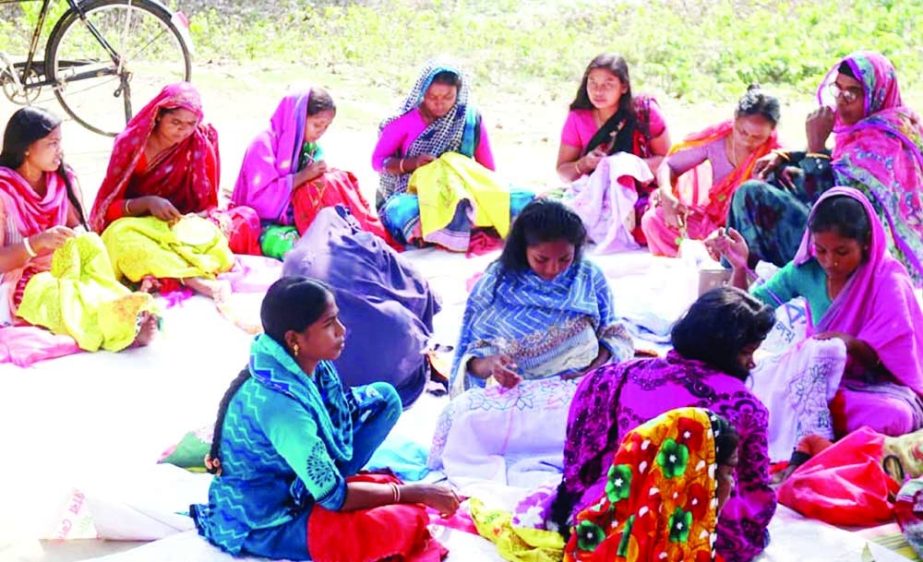
Ishwardi (Pabna) Correspondent :
Even in this era of modern civilization, when small ethnic groups enter the countryside, it seems as if they have remained in the primitive era. There is no system to meet the basic needs of this community. The residents of Ishwardi ethnic group are deprived of various civil rights including health care, education, sanitation. There are no educational institutions in ethnic villages. Children have to walk one and a half to two kilometers to the nearby village school. Children are turning away from education. There is also no awareness about birth control. Whatever government grants come, including old age allowance, disability allowance, do not reach them fully.
The small ethnic community of Ishwardi once had a lot of land, but now they have become landless due to the connivance of land robbers and some dishonest land office officials. 80 percent of tribal members are landless. After the war of independence, they did not get back the land that was occupied after returning from India. Some land has to be mortgaged while repairing houses and farming. Later they did not get these lands back. The bandits have captured it by strategy.
About 5,000 people of different ethnic groups live in the remote countryside of Ishwardi. Among them Malpahari, Bagdi, Munda, Bhuimali are notable. Also there are people from communities like Rajvanshis, Bunos, Ravidas, Rishidas and Bandyakars.
About 750 people from 170 families of Malpahari community live in Marmi, Lakshikola, Chakshrirampur, Kalkali, Nikarhata and Naodapara cluster villages of Muladuli. 370 of them are in Marmi. Malpahari lifestyle, social system, religion, language, cultural activities are all diverse. Their main occupation was animal hunting. Due to the reduction of forest cover over time, most of them are now engaged in other occupations including agriculture.
Malpaharis are the majority among the ethnic groups of Ishwardi. 750 people live in seven villages. Most of Malpaharis live in Marmi village. Here is their religious shrine, the Church of Queen Mary of Lourdes. On Sunday, all Malpahari men and women of the upazila came to church for worship. The church of Queen Maria of Lourdes lacks renovation so that when it rains, water pours out of the tin gutters.
The only school run by the Christian Mission in Marmi village is now closed. Some of the village children go to distant schools with difficulty, but most of the children are deprived of the light of education. Established in 1932, St. Philip’s Children’s Education Center still has its infrastructure. But babies have no cooing or any vitality.
The school had more than fifty students. Initially, the Christian Mission managed it, but later a non-governmental organization called ‘Caritas’ took over. But they also stopped the education program in 2019.
Madan Das, Convener of the Upazila Ethnic Group Committee, said that five thousand ethnic groups live in the upazila. Many of us are forced to change careers in order to survive. There are a small number who still hold to the profession of their ancestors.
Upazila project implementation officer Touhidul Islam said, on the occasion of Mujib centenary, 25 government houses have been allotted in Ishwardi from 2019 to 2022 in the name of ethnic communities. Out of this, 18 houses have been completed. Both are under construction. Preparations for allotment of the remaining five houses are underway. To get house allotment you must have land in your own name. Many people have applied to build houses but it is not possible to give houses to those who do not have land in their name.
Upazila executive officer PM Imrul Kayes said that there are thousands of ethnic minorities living in the upazila. Houses have been allocated in the name of members of several ethnic groups in Guchchagram. Now they are living there. Disability Allowance, Old Age Allowance, Widow Allowance are getting as per rules. Tribal women are being trained in embroidery and sewing. Apart from this, educational materials have been distributed among the students, bicycles have been given and sewing machines have been given to women.

